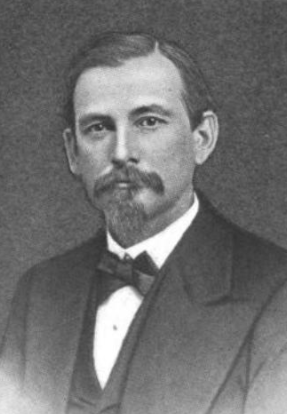George Robison Black facts for kids
Quick facts for kids
George Robison Black
|
|
|---|---|
 |
|
| Member of the U.S. House of Representatives from Georgia's 1st district |
|
| In office March 4, 1881 – March 3, 1883 |
|
| Preceded by | John C. Nicholls |
| Succeeded by | John C. Nicholls |
| Member of the Georgia Senate from the 17th district |
|
| In office January 13, 1875 – February 22, 1877 |
|
| Preceded by | Joseph S. Cone |
| Succeeded by | Herman H. Perry |
| Personal details | |
| Born | March 24, 1835 Near Jacksonboro, Georgia |
| Died | November 3, 1886 (aged 51) Sylvania, Georgia |
| Resting place | Sylvania Cemetery Sylvania, Georgia |
| Citizenship | |
| Political party | Democratic |
| Profession | Attorney |
| Military service | |
| Allegiance | |
| Branch/service | |
| Rank | |
| Commands | |
| Battles/wars | American Civil War |
George Robison Black (born March 24, 1835 – died November 3, 1886) was an American politician and lawyer. He was known for his work in the state of Georgia. His wife, Nellie Peters Black, was also famous as a social activist.
Contents
Early Life and Education
George Robison Black was born on March 24, 1835. His family lived on a large farm near Jacksonboro, Georgia. His parents were Edward Junius Black and Augusta George Anna Kirkland Black.
George went to college at the University of Georgia (UGA) in Athens. He also studied at the University of South Carolina in Columbia. After college, he studied law. He became a lawyer in 1857 and started his law practice in Savannah, Georgia.
Service During the Civil War
During the American Civil War, George Robison Black joined the Confederate States Army. He started as a first lieutenant in a group called the Phoenix Riflemen. Later, he became a lieutenant colonel in the Sixty-third Georgia Regiment. This means he was a high-ranking officer.
Political Career and Public Service
After the Civil War ended, Black continued to be involved in public life. In 1865, he helped write the new constitution for Georgia. He also attended the 1872 Democratic National Convention. This was a big meeting where the Democratic Party chose its candidate for president.
From 1875 to 1877, George Black served as a state Senator in Georgia. This meant he helped make laws for the state. He was also the vice president of the Georgia State Agricultural Society. This group worked to help farmers in Georgia.
In 1880, Black was elected to the United States House of Representatives. He represented Georgia as a Democrat in the 47th Congress. This was a very important job, as he helped make laws for the entire country. However, he did not win his reelection campaign in 1882.
Later Life and Legacy
George Robison Black passed away in Sylvania, Georgia, in 1886. He was buried in the Sylvania Cemetery. He is remembered for his service as a lawyer, a soldier, and a politician.
 | Jackie Robinson |
 | Jack Johnson |
 | Althea Gibson |
 | Arthur Ashe |
 | Muhammad Ali |

